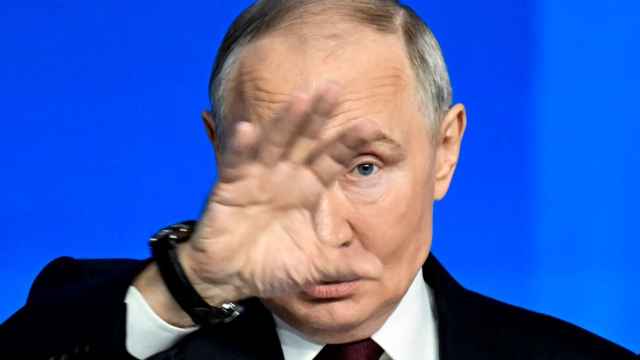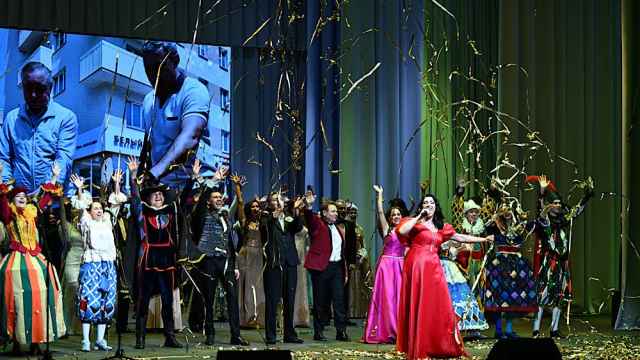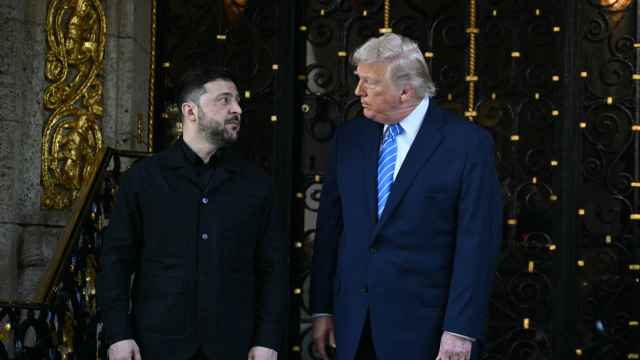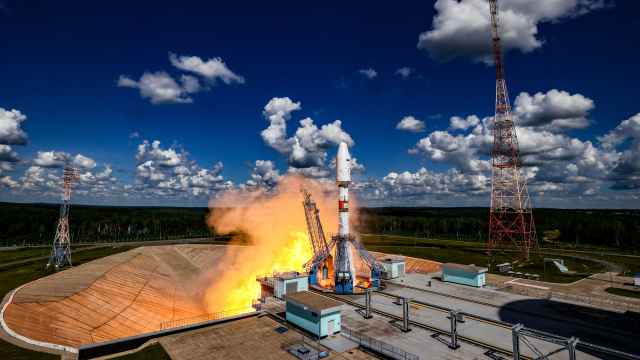STOCKHOLM — For the first time in 10 years, Russia last year spent a bigger share of its overall economy on arms investments than the U.S. as it seeks to bolster its military capability, a Swedish arms watchdog said Monday.
The Stockholm International Peace Research Institute, or SIPRI, said Russia increased its military spending in 2013 by 4.8 percent to $87.8 billion, representing 4.1 percent of its gross domestic product. Meanwhile, global military spending fell by 1.9 percent in 2013 to $1.7 trillion, as many Western countries cut arms investments following the financial crisis.
SIPRI program director Sam Perlo-Freeman said the increase in Russia is in line with the country's 2011-20 State Armaments Plan that aims to spend more than $700 billion on modernizing Russia's military equipment, technology and industry.
"The goal of building up military capability has been seen as more urgent since the Georgia war in 2008, which revealed serious shortcomings in Russia's military technology and readiness," he said.
However, he said economic constraints may prevent Russia from increasing military spending any faster than was previously planned, despite the ongoing crisis in the Ukraine.
"The economy is a key factor, including especially oil and gas prices, and many observers believe that the State Armaments Plan is based on over-optimistic economic projections, so that this may act as something of a constraint on the rate of increase of military spending," he said.
The U.S. cut military outlays by 7.8 percent in 2013, but remained the biggest arms investor in the world in real terms by spending $640 billion, or 3.8 percent of GDP. The fall is mainly a result of the end of the war in Iraq, the beginning of the drawdown from Afghanistan and effects of automatic budget cuts, SIPRI said.
China increased military investments by 7.4 percent to $188 billion, and is the second-biggest arms spender in the world.
SIPRI said a pattern has been established in recent years whereby military spending is falling in North America, Europe and Oceania while it has increased in other regions.
"In some regions, such as those surrounding China and Russia, there is a danger of military spending growth contributing to a ratcheting up of tensions," Perlo-Freeman said.
He said the lower military spending in Western Europe likely means a diminution of countries' abilities to intervene overseas, but said the Ukraine crisis could turn around that trend, especially in countries close to Russia.
A Message from The Moscow Times:
Dear readers,
We are facing unprecedented challenges. Russia's Prosecutor General's Office has designated The Moscow Times as an "undesirable" organization, criminalizing our work and putting our staff at risk of prosecution. This follows our earlier unjust labeling as a "foreign agent."
These actions are direct attempts to silence independent journalism in Russia. The authorities claim our work "discredits the decisions of the Russian leadership." We see things differently: we strive to provide accurate, unbiased reporting on Russia.
We, the journalists of The Moscow Times, refuse to be silenced. But to continue our work, we need your help.
Your support, no matter how small, makes a world of difference. If you can, please support us monthly starting from just $2. It's quick to set up, and every contribution makes a significant impact.
By supporting The Moscow Times, you're defending open, independent journalism in the face of repression. Thank you for standing with us.
Remind me later.





